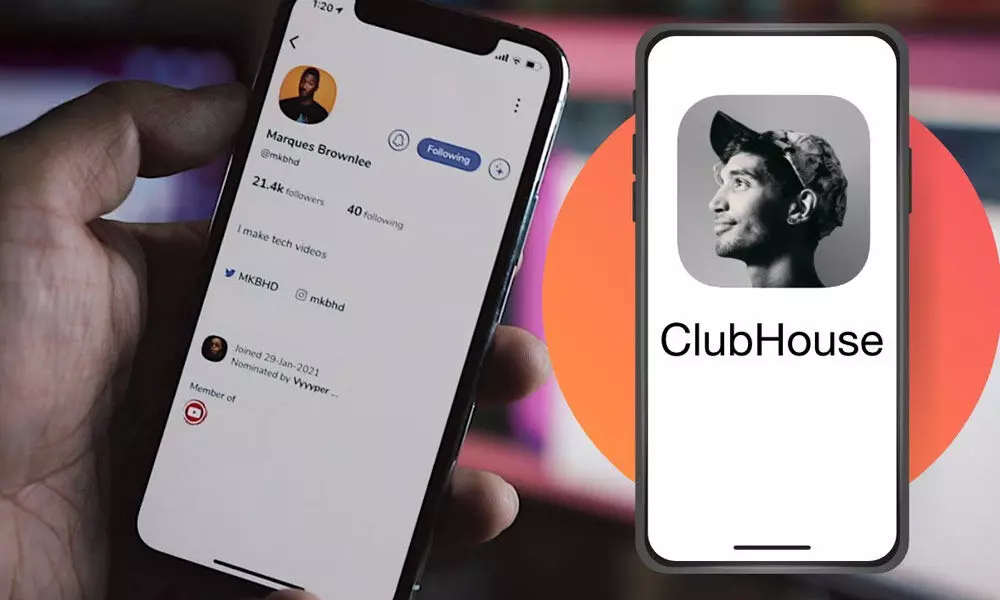Clubhouse hears the footsteps. Can it stay ahead?
Despite the growing threats, Clubhouse remains in the pole position. Staying there won’t be easy, though
image for illustrative purpose

When a giant of social media goes on a rival platform and sings its praises, that's something. Facebook Inc. Chief Executive Officer Mark Zuckerberg did just that last month on Clubhouse, the audio-focused upstart that's exploded in popularity recently. "What Clubhouse is doing and has pioneered is really impressive," Zuckerberg said as a guest on the show "PressClub." Live-audio social media, he added, "is going to be a pretty big space." And it's not just Facebook. Twitter Inc. seems intrigued, too.
On Wednesday, Bloomberg News reported that Twitter has held discussions to acquire Clubhouse for about $4 billion, though talks are no longer active. The news came a day after Bloomberg said Clubhouse is in discussions to raise capital from outside investors at the same valuation. It would be stunning if it happened because it would mean the startup's value had quadrupled since its last venture round three months ago and risen 40 times since last May. But it's very possible.
All of these developments show the level of excitement surrounding the Clubhouse app, which lets users pop in and out of ephemeral chat rooms and participate in on-demand social conversations of various sizes, with numerous formats and subjects. But there are downsides to attracting such attention, and the endorsements cut both ways. Competitors see the opportunity in the space and are eager to stake their claim on what could be the next big social-media smash. Already, Facebook, Microsoft Corp.'s LinkedIn, Twitter and Slack Technologies Inc. have revealed they will offer similar functionality inside their apps, while Spotify Technology SA entered the arena through the acquisition of competing startup Locker Room. And last week, Discord Inc. launched a copycat feature called "Stage Channels."
Despite the growing threats, Clubhouse remains in the pole position. Staying there won't be easy, though. The platform will need to overcome some recent growing pains and execute flawlessly in the coming months. But if Clubhouse receives proper support from its backers and takes advantage of its early mover status, the company should be able to maintain the lead in the category it has created.
Here's the state of play: An injection of funding would come at a critical time for Clubhouse. Under pressure, the startup is signalling its willingness to put off making money and pursue a growth-at-all-costs strategy. Earlier this week, it announced the launch of a tipping feature called "Clubhouse Payments," which enables users to send money to creators. In a surprising move, Clubhouse said it would take no commissions, making the monetisation feature more lucrative for room hosts. Such an aggressive strategy at this early stage makes sense. It will help attract the most influential speakers, boosting the chances that Clubhouse can build the best and largest community cantered on live audio.
There is more to do. While February was a banner month for increasing its user base as many CEOs, politicians and celebrities joined the platform for the first time, Clubhouse has had problems retaining the new audience. Anecdotally, I've seen a drop-off in activity, with many complaints cantered on the app's inability to surface relevant rooms of interest. During recent town hall events, co-founder Paul Davison has acknowledged the issues. "I think we've grown too fast," he said, saying it has led to a poor user experience and glitches including red "error" messages from overwhelmed servers. Davison vowed that in coming weeks Clubhouse will focus on improving the app's personalization features so it can make better suggestions about the rooms, clubs and personalities its users might like.
Another crucial development is coming with the launch of the Clubhouse Android app, which will allow the platform to widen its community. Currently, users can join Clubhouse only by invitation, and the app is limited to Apple Inc. devices - a sliver of the overall smartphone market. According to Statcounter, nearly three-quarters of the global smartphone population uses Android phones. Opening the app to this larger population should drive another wave of new users. Davison has tentatively said the company plans to launch the Android version sometime in May. If Clubhouse can fix its algorithms ahead of the Android launch, it can quickly get back on its growth track.
As for the competition, Clubhouse has key advantages. For all the chatter, no other company is close in attaining a viable live-audio community yet. Over the past week, I experimented with Spotify's Locker Room and found it had less than 10 active rooms each time I opened the app. While Discord received fanfare for releasing its Clubhouse clone so quickly, I noticed it was primarily a layout change for its voice-channels feature that is siloed inside the app's disparate micro-communities - nothing like the centralised community at Clubhouse. Finally, there is Twitter, which may be the closest true rival with its current beta test of Spaces. But no matter what happens when the company launches the service to the general public, Twitter will have the stumbling block of it being a tack-on feature to its core text-based offering, requiring extra steps to discover and find audio rooms. The fact it also held talks to buy Clubhouse may point to a lack of confidence in its own offering, Clubhouse's laser focus and smaller size should make the difference. It has already shown it can be more nimble and roll out additional features quicker than the larger companies. As long as it fixes its latest issues before the release of its Android app, Clubhouse will still be the one to beat. (Bloomberg)

